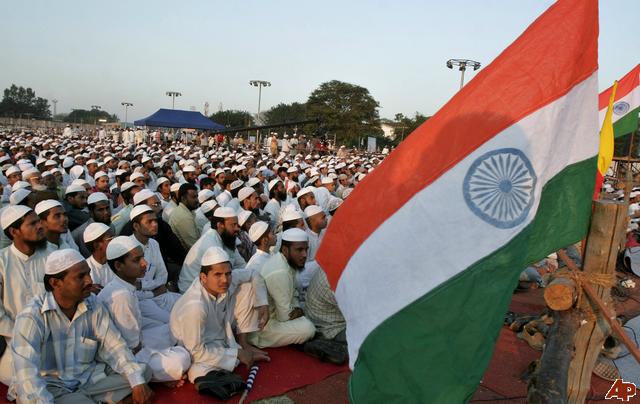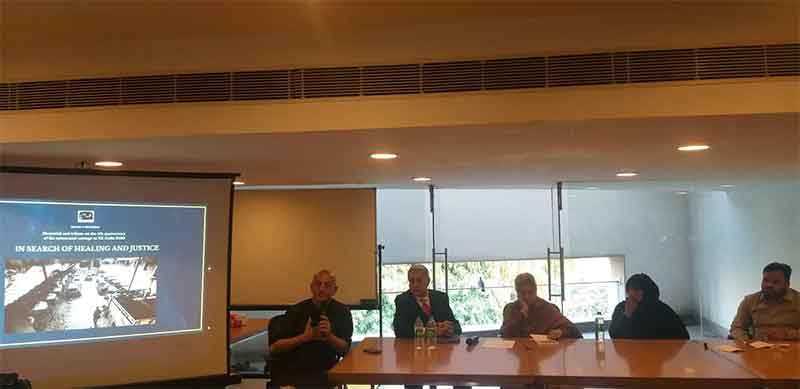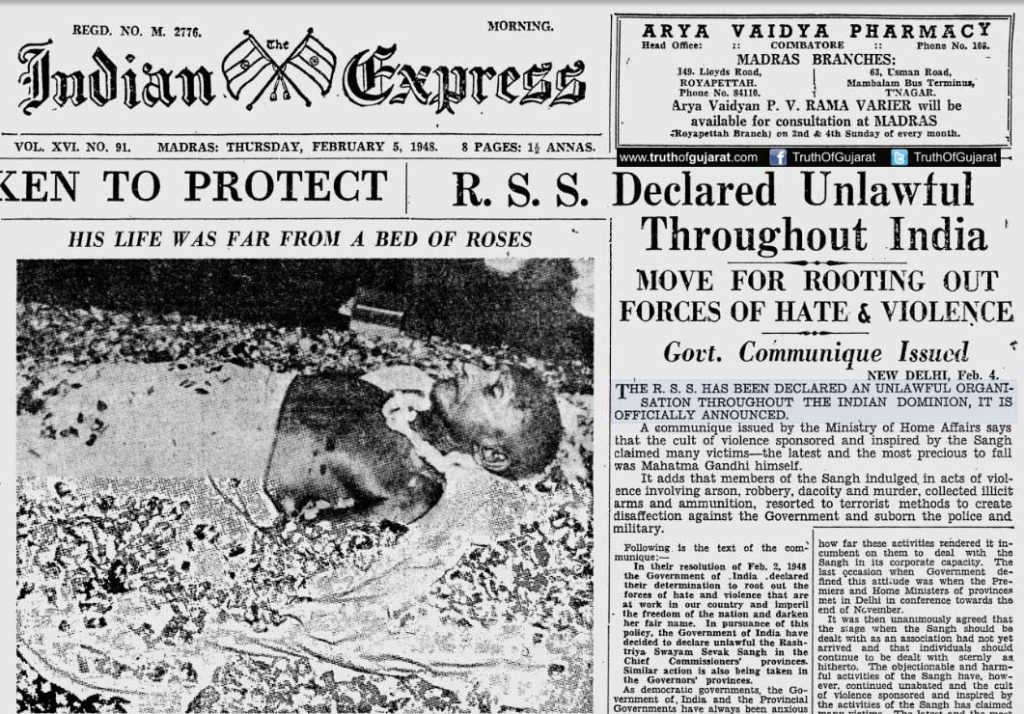
Desmond Morris’s pithy observations in The Naked Ape may be considered obsolete in our times, when we are busy talking about posthumans and homo-roboticus; but I think, it still contains many nuggets of wisdom. Being a zoologist, he sees quite a lot of parallelisms, between, us naked apes, who at some point in our history, unilaterally proclaimed the shattering of our animal selves and chose to shed our furry hides, and our cousins still clinging to the wilderness and its primitive, pristine ways. At least in contemporary India, where homicidal zoophilia, as exemplified in the renewed bovine vigilantism holds sway, Morris’ zoology has some worthy insights and idioms to offer, more than any sociological or political text.
While commenting on the instincts to fight and reconcile among animals, he talks about how animals are fiercely vigilant about guarding their territories and habitats. Animals usually mark their territory through their scents and odours of defecation and urination. Once infringed upon, the animals take on the encroachers fiercely, but most often, the dispute is settled through the liberal employment of threats and counter threats in the form of barks, growls and grunts. This is because the twin parts of the autonomic nervous system—i.e., the sympathetic system that activates the fight/flight response is immediately counteracted by the parasympathetic system that restrains fighting and restores calm. However, animals do not indulge in senseless and gratuitous violence and once the encroacher sends out submissive signals, peace reigns. This kind of submissive signals varies from animal to animal. In creatures like chimpanzees, it involves certain grooming gestures on the part of the subdued animal. It crouches before the victor, extends its hand to the victor and even takes the trouble to groom the victor’s ruffled furs. According to Morris, we humans too resort to such tactics to placate aggressors and signal submissiveness. Reconcilement meetings followed by lavish dinners, ample hugs and elaborate handshakes, placatory gestures involving payment of reparation, and a host of other gestures signal this.
In our charged times, if there is someone, so busily engaged in sending such submissive signals, it is the minority community in India. During the Covid times, there was a deluge of reports about young Muslim men taking the trouble of burying/cremating Covid victims belonging to all communities in cities from Mumbai to Chennai, and a lot of nondescript places, where Muslim youths under the auspices of organizations like Raza Academy were busy cremating and burying bodies of Covid victims. One curious thing was that, even an organization like SDPI, condemned both by the mainstream and many Muslims as extremists, was in the forefront of these operations that at a point, the Maharashtra government led by the Siva Sena is said to have sought their assistance in disposing off dead bodies.
In best of times, this kind of gestures need to be appreciated and applauded, but in the altered situation, where the very locus-standi of a community is being questioned as exemplified through legislations like CAA, and the selective use of draconian rules like UAPA, this has to be interpreted more in the zoological terms used by Morris than through any altruistic prism. That is: these gestures suggest abjection, genuflection and grovelling than anything else.
Modi has indeed succeeded in wrecking the economy and in sabotaging all democratic institutions, but his greatest success lies, in intimidating the largest minority community in India. Never before in the history of India, has the community felt so frustrated, flustered and crestfallen. As the rumblings over the CAA were being felt across the country, Muslims from Assam to Kerala were busy running to village schools trying to dust and retrieve their long forgotten documents, recover their ancient title deeds and excavate other bits and pieces of evidence that could prove that they had set their roots here before Hanuman monkey-leaped to Lanka. A school teacher born on the right side of the religious and the caste-divide, narrated how on a particular morning, he was moved to tears seeing Purdah-clad women making a beeline before his school office to gain documents that their grandpas had once upon a time trudged the corridors of that rundown institution.
Once, when I met an old college friend of mine at a party in the post-CAA but pre- Covid days, the well-read man who was a hardcore leftist during his college days, told me how the Muslim condition in the country now resembled that of Pi crossing the Atlantic in the company of Richard Parker. A friend of his, who was at the table, however, sought to disagree. He said: our condition doesn’t resemble so much as that of the Pi with the dreaded tiger; rather we are in the company of the hyena without Richard parker. In fact, it is not one hyena, but a whole lot of them. Richard Parker, being a tiger, could but be a decent killer who would directly go for the victim’s jugular, but you can’t expect any such decency from hyenas. Didn’t you see those hoardings in the street corner? He was referring to those hoardings by a Right Wing group depicting full of tigers with bare teeth and claws and graffiti containing unmistakably threatening messages for Muslims. If this is so in Kerala, you can just imagine how things would be in the rest of the country? In fact, a whole narrative representing Muslims as barbarians descending on the country in the Kaliyuga has been assiduously built and propagated, which sees Muslims as Cancerous growths that need to be excised.
What the August 5th of 20220 and onwards symbolize for Muslims and the wider secular society in this country, is the death and formal burial of August 15. August 15th symbolized a tryst with destiny; it marked the epochal resolution of the populace of a land to forget the bitterness of the past experiences and forge ahead, to bury the spectres of the past that splintered its polity and geography into pieces and brave the odds and weather the storms of an increasingly uncertain world. August 5th marked the end of this dream, the victory of myth and fallacy over fact and history, the bulldozing and bludgeoning of justice by brute majoritarianism and the triumph of unfettered authoritarianism over democratic safety mechanisms. The fact that its solemnization was done by the political head of the state and not by any priest contains ominous signals for the minority communities and the secular fabric of the nation. A leading votary of the Sang Parivar in Kerala had gone on record saying that Godse should have got his target right had he gone for Nehru’s jugular than Gandhi’s chest; what the Parivar succeeded in doing on August 5th was exactly that.
Let me not leave Morris’s Naked Ape. According to the zoologist, while other primates, abandon fighting and reconcile once dominance is established or hierarchy restored, the hairless ape’s rage is such that it is capable of utterly decimating its opponents even at the cost of self-annihilation, and that too despite all the submissive signals from the vanquished. In India, the situation of the minorities remains eerily similar. All the way from the ruler, to the law enforcers to the petty officials, all the grovelling signals emanating from the community, have only resulted in further demands to creep and crawl. A man with a beard, though born to the right side of the religious divide, is an easy pick for the policemen to pounce upon and release their pent-up energies, only to shamelessly apologize once the mistake is revealed; students reading in the serenity of an esteemed central institution are perfect targets to bully, bruise and brutalize; and in a riot situation, minority chests afford ideal targets for honing the combat skills of the law enforcers. If the rioters belong to the right community, the police help them in their nefarious mission, and if they belong to the fault-lines the police operate most savagely. While the Karanataka Government is busy trying to recover the damages from rioters belonging to the minority community who hit the streets, following a defamatory post on the prophet, the Delhi administration is in no hurry to bring the culprits who savaged the capital for days on end, because they were after all patriotic rioters who chanted Vane Matara, instead of Allahu Akbar.
In Jim Crow America, an anonymous black poem had it thus: Ask a white boy/ Who a policeman is/ A guardian of law, he would say/Ask the black boy/ Who the policeman is / A Pig he will say…of course the term pig was used widely as a slang for law-enforcers among Afro- American community in the US and the usage has still not disappeared completely despite all the linguistic policing. As Arundhati Roy famously demonstrated in her God of Small Things, the law-enforcers have an instinctive knack for picking on the most vulnerable; in her terms, in India, the police have often found the untouchable more touchable when it comes to unleashing their savage rites. In the altered scenario of the rapid Dalitization of Muslims, they probably fit the bill better than any other ‘untouchables.’ It was the other day that two officers of the Madhya Pradesh police were promptly disciplined for misbehaving with a Sikh man. The gravest mistake that the police made in this instance was picking the wrong minority. Can anyone imagine such a step if the object of the uniformed rage were Muslims? In Kerala, there was a scuffle involving fisher-folks belonging to Christians and Muslims in Beemapally in 2009 and the situation hadn’t even threatened to spiral out of control. But the police were quick to act. They promptly opened fire and killed six men. Unlike the MP police, they chose their victims with discretion. All those who lost their lives were Muslims and the incident created only some flutter among Muslims but no police officers lost their jobs. After all they had made sure that the victims were not shot below their waists, which smacked of perfect professionalism!!!.
Once while doing PhD at Bombay IIT, I was on an amble with two of my Hindu friends beside the Vihar lake. A police constable flagged us down. I stopped in my tracks and went to the beckoning policeman. My two Hindu friends walked ahead unmindful of the police. When I explained to the police that we were from the IIT, the constable waved me off and I joined my friends. They laughed at me suggesting that I was a fool to heed the call of a lowly constable. They of course, didn’t know that a uniformed man means quite a different thing for one with no foreskins.
At the table, my friend, who evoked the hyena metaphor continued to wax eloquent. At every turn, we now have to prove our loyalty. During last Independence Day, I saw the Madrasa teachers in our town marching in procession with the national flags while the teachers in the government run-schools drawing salary from the exchequer were still in the hangover of their predawn dreams. If a primary school boy with a cap gets his India map wrong, or if his sibling studying in the kindergarten fails to be on her feet during the ritualistic national anthem, their patriotism is considered suspect. What else can you expect in a country, where a leader of the ruling party had called to dig up the graves of our foremothers to be …Oh stop! I cut him short. I knew the conversation had surely hit a dead end.
At home, in my shelf I glance through the pages of BJP leader and ex-minister MJ Akbar’s book, The Shade of Swords tracing the history of Muslims and their current predicament. Somewhere in that worthy tome, he mentions the several outlets that despair finds—poetry and art, he says are the most innocuous among them, but sometimes it assumes the form of senseless violence and self annihilating terror. I pray to God to spare my country and community that fate…After all in Guernica too, Picasso had inserted a beam of hope as symbolized by the wilful flower seeking to poke its head through all those colossal wreckage.
Umer O Thasneem is a bilingual author who teaches English Literature at the University of Calicut. His latest book Orhan Pamuk and the Poetics of Fiction has been published by Cambridge Scholars UK. The views expressed here are personal
SIGN UP FOR COUNTERCURRENTS DAILY NEWSLETTER
















































